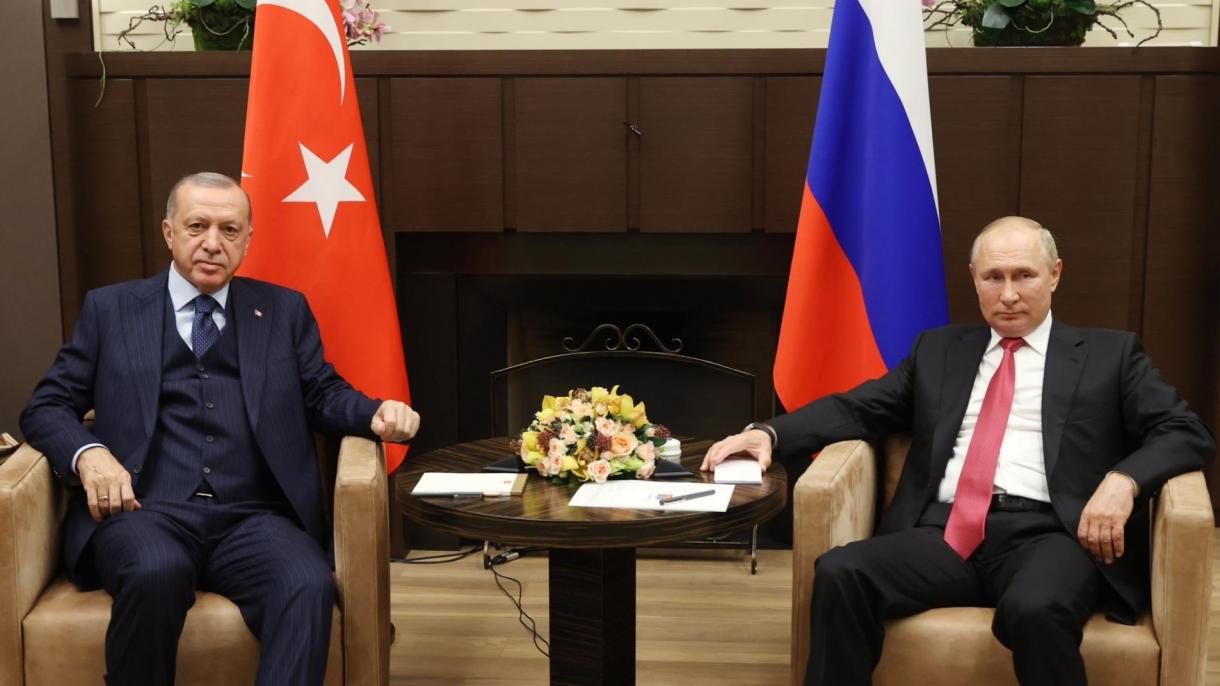The recent meeting came a week after criticizing the state of Turkish relations with the administration of US President Joe Biden, to the effect that: “There is no good process in relations between Turkey and the United States”. During the meeting, in addition to bilateral relations, issues such as Syria, Libya, Karabakh, trade relations, the purchase of the second package of S-400 missile defense systems, natural gas and regional developments were discussed. During the bilateral meeting, the two sides outlined their red lines on vital issues, including the Kurdish regions to Crimea, from Afghanistan to Libya and from the Caucasus to Syria.
The main topic of the meeting was the recent escalation of tensions in the Syrian city of Idlib. Concerns escalated in the region after Moscow recently attacked opposition positions around Idlib, with the possibility of cancellation of a ceasefire under Russia-Turkey agreement reached on March 5, 2020 in Idlib. Erdogan and Putin agreed to maintain the status quo in the Idlib region, an issue that has strained Moscow’s relations with Ankara in recent years. However, the Syrian president is trying to end the civil war that has been going on since 2011 by occupying Idlib as the last major resistance point in the hands of the opposition. Failure to observe a ceasefire in the region and the readiness of Russia and Syrian forces to conduct operations are seen as factors in escalating tensions in the region.
After Erdogan’s recent meeting with Putin in Sochi, attention was focused on Idlib. Turkey claims that no changes have been made to Turkish observation posts in Idlib following the recent visit to Sochi, and that talks with Russia to resume joint patrols are going on. The two sides have agreed to abide by the March 5 agreement. Moscow’s approach to Idlib is very clear. According to Moscow, radical jihadists are using Turkish military bases in and around Idlib as a shield against the Syrian army. Of course, Russia will sooner or later give the green light to the Syrian army to retake Idlib. In his latest position, Russian Foreign Minister Lavrov believes that threats continue in Idlib. Some terrorist groups are intensifying their activities in the region and are even attacking Russian forces. Those terrorist groups must be expelled from the region as soon as possible.
Ankara and Moscow have been holding intensive talks on Idlib since 2017. The main purpose of the talks was to prevent a humanitarian catastrophe in Idlib and to eliminate terrorist groups in the region. The Sochi agreement signed between Turkey and Russia in October 2019 provided for the withdrawal of elements of the YPG terrorist group up to 30 km south of the Euphrates. In this regard, Erdogan stressed to his Russian counterpart the need to implement the Sochi agreement as soon as possible.
The issue of S-400 missile defense systems was a major issue at the recent Sochi summit. During the meeting, Erdogan referred to the issue of continuing Turkish-Russian cooperation in the field of S-400 missile defense systems. It is said that in the United States, the need to cancel the purchase of S-400 missile defense systems was stressed to the Turkish President Erdogan. In Sochi, Erdogan not only sent a strong message to Biden, who has closed the doors on him, but also extended a hand for cooperation to Russia, citing the possibility of buying a second package of S-400 missile defense systems from Russia. Turkey’s agreement to buy a second package of S-400 missile defense systems from Russia is Putin’s main achievement since the Sochi summit. November 5 will be a critical date for S-400 systems, and the crisis will intensify as Turkey launches a roadmap to buy a second package of S-400 missile defense systems from Russia.
In recent years, one of the West’s concerns has been Turkey’s purchase of S-400 systems from Russia. Under an agreement signed in late 2017, Turkey bought two S-400 missile defense systems worth 2.5 billion dollars from Russia. For this reason, Turkey was targeted by the CAATSA (Countering America’s Adversaries Through Sanctions Act) and was excluded from the F-35 fighter planes acquisition project. Erdogan rejects criticism that Turkey has weakened NATO as the West’s most important military alliance by buying advanced defense systems from Russia and responds: We are a member of NATO on one hand and we have relations with Russia on the other hand. Why should we choose one?
Erdogan added: We are buying the weapons we need. If the Americans had sold the Patriot missile defense system to Turkey, we would not have to buy the S-400 systems. We can strengthen our defense as we wish. According to the head of the Russian arms exporter company, Ankara and Moscow will soon sign a new agreement on S-400 missile defense systems. There are also rumors about the possibility of buying the SU-35 and SU-57 fighter planes by Turkey from Russia.










0 Comments